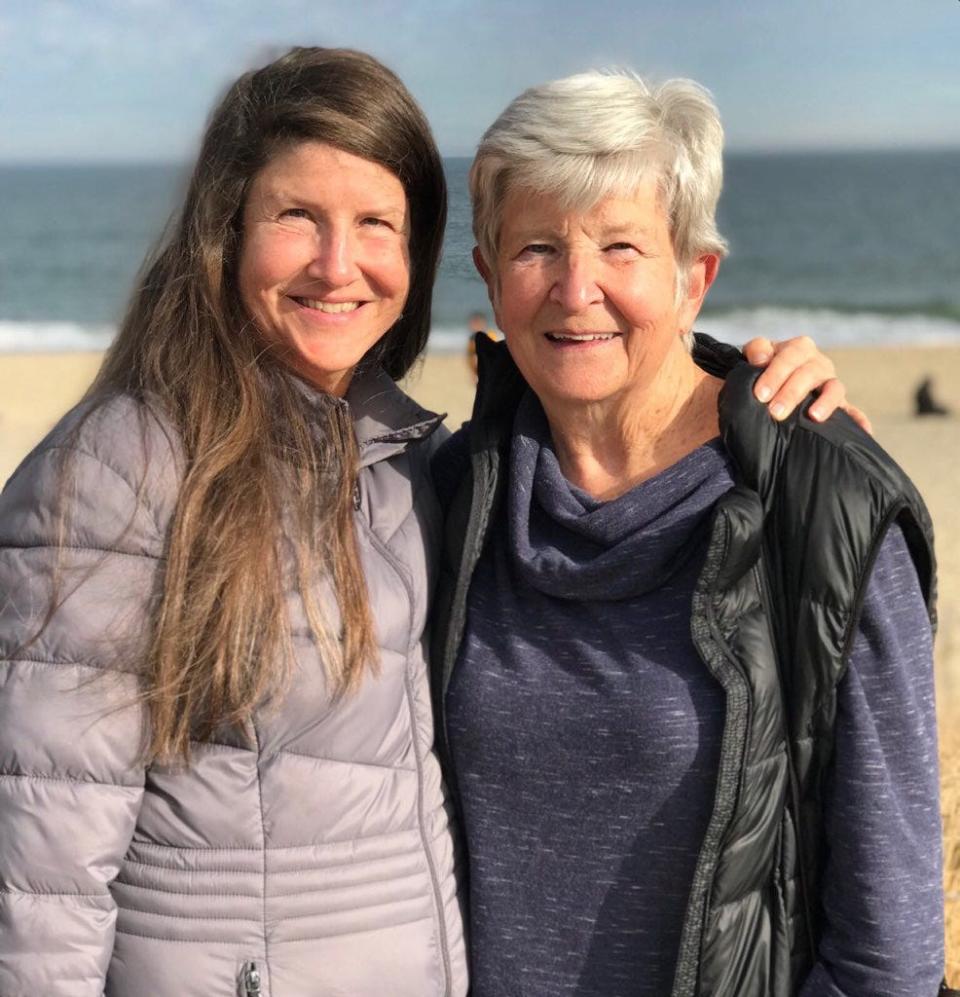This mother survived a genetic kidney disease. Now, her daughter is fighting it, too
Nearly 10 years ago, Carol Soha went from being a name on a transplant list to a polycystic kidney disease survivor.
Now, the 75-year-old hopes to find a donor for her daughter, who is facing the same disease.
Polycystic kidney disease, or PKD, is an inherited disorder that causes uncontrolled growth of cysts in the kidney. The damage makes the kidney larger than normal, eventually leading to kidney failure, according to pkdcure.org.
“A person with PKD has a 50% chance to pass it on to each child,” said Soha, a retired nurse of Newark. “My PKD originally came from my grandfather, and he gave it to my mother who died at the age of 47.”
While kidney-related diseases affect all races and ethnicities, Black and Hispanic Americans are more likely to develop kidney disease and have worse outcomes. Black people are more than three times as likely, and Hispanics or Latinos are 1.3 times more likely to have kidney failure compared with white Americans, according to kidney.org.
Soha’s daughter, Deborah “Lara Beth” Kistler, is in stage 5 of PKD. The 52-year-old woman is in desperate need of finding her “living kidney angel” soon, Soha said.

“For years, my daughter has had people line up and come very close to being her donor, but they were disqualified,” Soha said. “The family would get excited, then we get let down. It’s very difficult to find a living donor ... you have to be extremely healthy to give a kidney.”
April is designated National Donate Life Month and the need for awareness is ongoing to encourage organ donor registration. Delaware Online/The News Journal sat down with Soha about the donor process and going forward with testing.
What are the benefits of becoming a living donor?
It can be a very rewarding and positive experience − over 100,000 people are awaiting a kidney transplant, so donating a kidney is a courageous act of kindness, Soha said.
"Living kidney donors often experience a sense of satisfaction and pride for having helped someone in need," she said. "A kidney from a living donor generally starts to function immediately and lasts longer than a deceased donor's kidney."
Is there an age cutoff for being a living donor?
No. Soha said kidney transplants have been performed using organs from people over the age of 70. However, to be evaluated as a potential kidney donor, an individual must be at least 18 years old, she said.
“[Qualifying] also depends on your hospital and your health,” she said. "You can contact local transplant centers or there’s also the National Kidney Registry if you want to begin the process. It includes completing an initial screening questionnaire which asks questions relating to mental and physical health, lifestyle, and family history."
What does the living donor need to know about the surgery?
Soha explained that living donors can opt out of the surgery at any stage of the process. However, for those who proceed, the usual hospital stay can be up to four days and recovery is usually between one to three weeks. You can live a completely normal life with just one kidney after surgery, she said.
The procedure is almost always done laparoscopically, which is a preferred type of surgery that promotes less surgical pain, and quicker recovery time. A kidney transplant is one of the most common surgeries, dating back to the 1950s, she said.
To learn more about Deborah Kistler, visit, www.nkr.org/APT884/Card. To learn more about becoming a donor, visit, www.organdonor.gov.
Have a tip or story idea? Contact local reporter Cameron Goodnight at cgoodnight@delawareonline.com, or by calling or texting 302-324-2208. Follow him on Twitter at @CamGoodnight.
This article originally appeared on Delaware News Journal: Delaware nurse saved by kidney donation advocates for daughter, others

